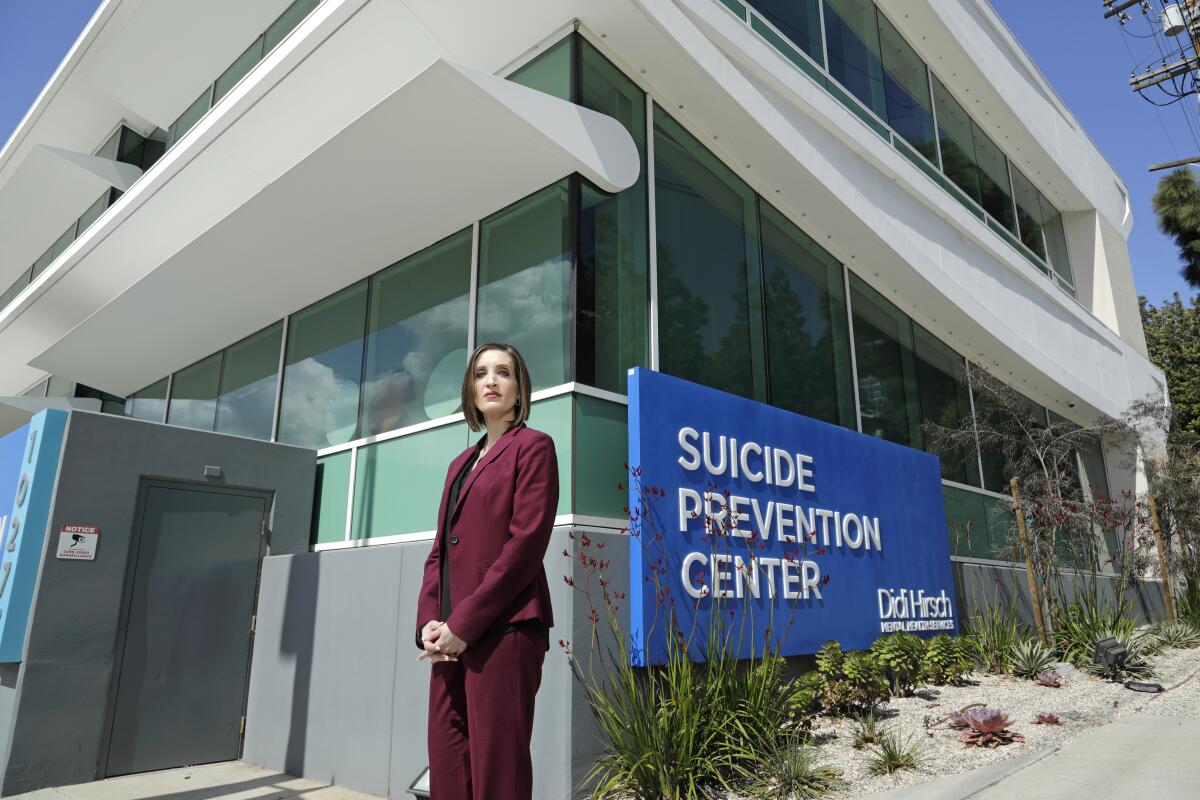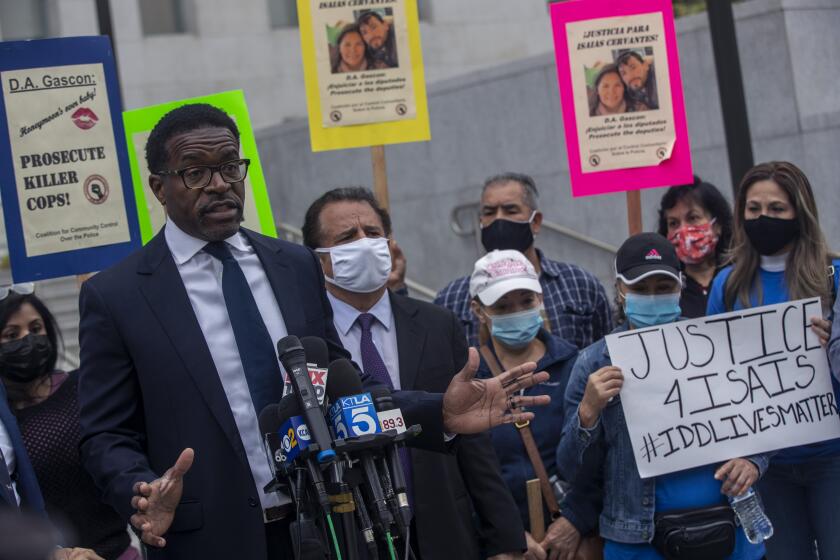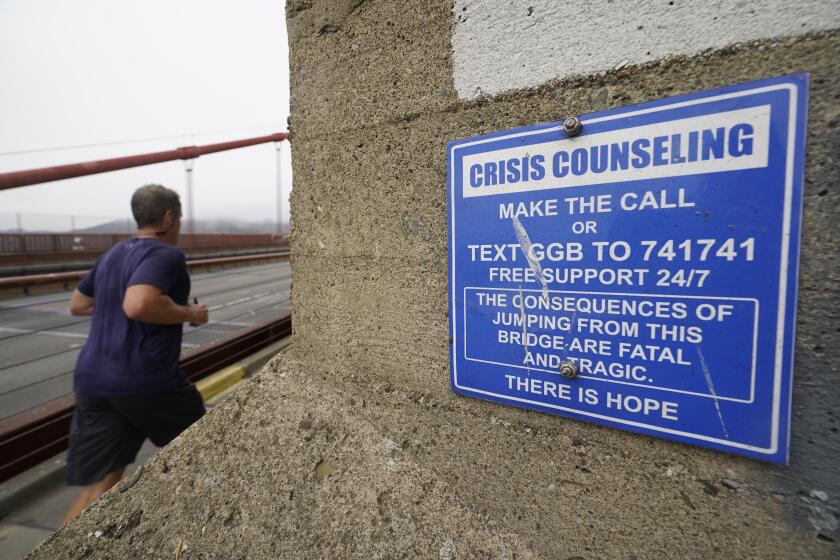Editorial: For crisis response, press 988 — and pass a bill to keep it funded

- Share via
In the future, there will be a number to call for help, much like 911, yet different. It will be like a suicide crisis line, but better. On the other end of the line will be trained and experienced counselors adept at assisting people in the midst of mental health crises. They will be able to field questions and offer resources to families and friends concerned for the well-being of their loved ones. Their real-time, over-the-phone emergency counseling skills will be enhanced by a kind of superpower: They will be able to dispatch mental health clinicians, instead of police officers with guns or paramedics with trauma equipment.
And those on-the-ground experts will have an appropriate place to take people in crisis. Not jail, not the hospital, but centers geared expressly for meeting the needs of people experiencing an emotional, psychological or substance-use breakdown.
The number will be short and as easy to remember. It will work anywhere in the United States. It will be linked with 911 and the current national suicide prevention hotline, so that operators picking up any of those lines will be able to seamlessly transfer callers to the right responders depending on need.
This new number is an integral part of the future imagined by activists for better mental health care, fewer unnecessary police shootings and an alternative response system that recognizes the difference between crime-fighting and behavioral health care.
Isaias Cervantes, a deaf and autistic man shot and paralyzed by sheriff’s deputies in his own home last year, has been traumatized by public agencies that are supposed to help him.
The number is 988. And the future begins Saturday when the nationwide system goes live.
There’s been little fanfare, and that may be a good thing at this early stage. Under federal legislation adopted in 2020, implementation is left to the states, which must come up with funding to keep the phone response operating and to ensure there are people to answer the calls and respond in person. Few states have identified enough funding to keep the system afloat beyond the first few years.
That includes California. Federal pandemic-era largesse will be enough to launch the system here but not enough to keep it going past Year 3.
A modest fee on phone service, similar to the funding model for 911, would be sufficient. Assemblymember Rebecca Bauer-Kahan, a Democrat from Orinda, introduced the appropriately named AB 988 last year to (among other things) authorize a surcharge beginning at 8 cents a line per month.
It would be a wise investment. Mental health incidents too often are treated as crimes and turn what ought to be emergency help into deadly encounters.
Suicide prevention and crisis response systems need more support.
It’s noteworthy that Bauer-Kahan’s bill is also called the Miles Hall Lifeline Act. Miles Hall was a 23-year-old man with a history of mental health challenges, living with his family in Walnut Creek. On June 2, 2019, as he was experiencing a mental health crisis, a family member called police for help. Officers responded, encountered Hall on the street near his home and shot him to death.
An estimated 25% of victims of police killings are dealing with psychiatric problems or are otherwise mentally atypical, behaving in ways understandable to professionals familiar with mental illness, autism, intellectual disability and other conditions but not to law enforcement officers trained (and armed) principally to fight crime. In that sense the horrific Hall shooting was common.
988 is not merely a new number for an old suicide hotline, but is instead — or will be if handled properly — the kind of response system that mental health professionals, activists and even police say they want. Like the CAHOOTS program in Eugene, Ore., that became the subject of nationwide discussion as an alternative to policing in the wake of the George Floyd murder in Minneapolis, local and state programs linked to 988 can direct appropriate, non-police response where it’s needed.
Los Angeles County is ahead of the curve in the sense that its 988 call center will be run by Didi Hirsch Mental Health Services, which has been providing crisis counseling since 1942. The organization already provides suicide lifeline services for L.A. County callers to the existing (but cumbersome) number, (800) 273-8255.
The county, led by Supervisor Janice Hahn — a champion of alternative crisis response — supports the bill. Other California counties don’t yet. That’s shortsighted. 988 could be the biggest and most positive change to the way government responds to emergencies since the first 911 call in 1968. The first step takes place this weekend, when the service goes live. In California, the second step should be to pass AB 988 into law.
More to Read
A cure for the common opinion
Get thought-provoking perspectives with our weekly newsletter.
You may occasionally receive promotional content from the Los Angeles Times.












